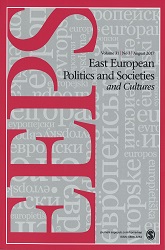Ballot Paper Design and Vote Spoiling at Polish Local Elections of 2014: Establishing a Causal Link
Ballot Paper Design and Vote Spoiling at Polish Local Elections of 2014: Establishing a Causal Link
Author(s): Michał Pierzgalski, Maciej Antoni Górecki, Paweł StępieńSubject(s): Civil Society, Electoral systems, Politics and society, Methodology and research technology, Sociology of Politics
Published by: SAGE Publications Ltd
Keywords: spoilt/invalid votes; ballot paper design; generalized synthetic control method; local elections; Poland;
Summary/Abstract: Large proportions of spoilt ballots may lead to a distortion of election results. While invalid votes are sometimes meaningful political acts, reflecting political protest, spoilt ballot papers may also be a consequence of voter error, which can be attributed to the poor design of a ballot paper. In this study, we focus on the widely publicized case of the Polish local elections of 2014. These elections saw unprecedentedly large proportions of spoilt votes, and ballot paper format was often mentioned as a potential culprit. Yet it remains largely unclear whether or not there indeed does exist a cause-and-effect relationship between ballot card format and the tendency of voters to cast invalid votes. We argue that what we deliver here is the first methodologically refined test of the aforementioned hypothesis. We apply the generalized synthetic control comparative method, proposed by Yiquing Xu (in 2017), and show that the implementation of a complex or ambiguous ballot design can result in a substantial increase in the rate of spoilt votes. We thus demonstrate that ballot paper design matters. Specifically, the results of this study corroborate the existence of a cause-and-effect relationship between ballot paper format and the fraction of invalid votes in the 2014 municipal elections in Poland.
Journal: East European Politics and Societies
- Issue Year: 34/2020
- Issue No: 03
- Page Range: 611-636
- Page Count: 26
- Language: English
- Content File-PDF

